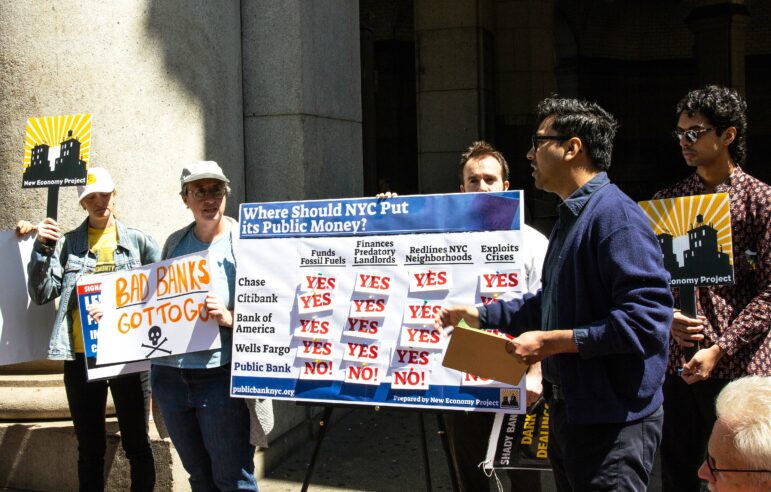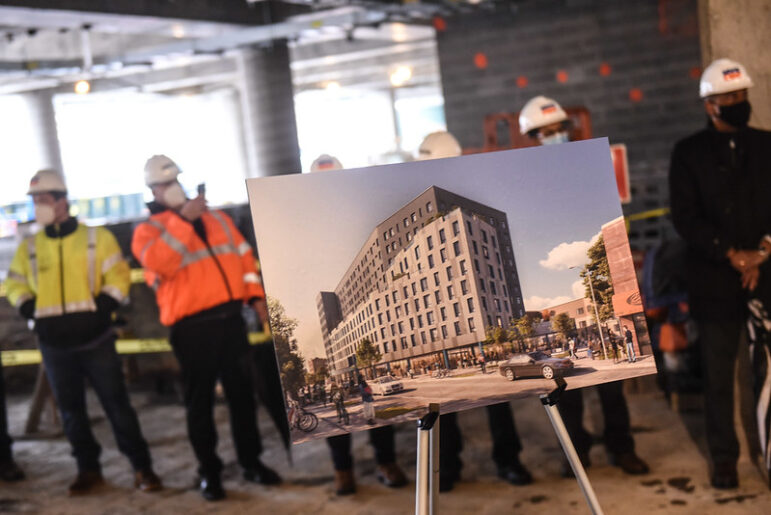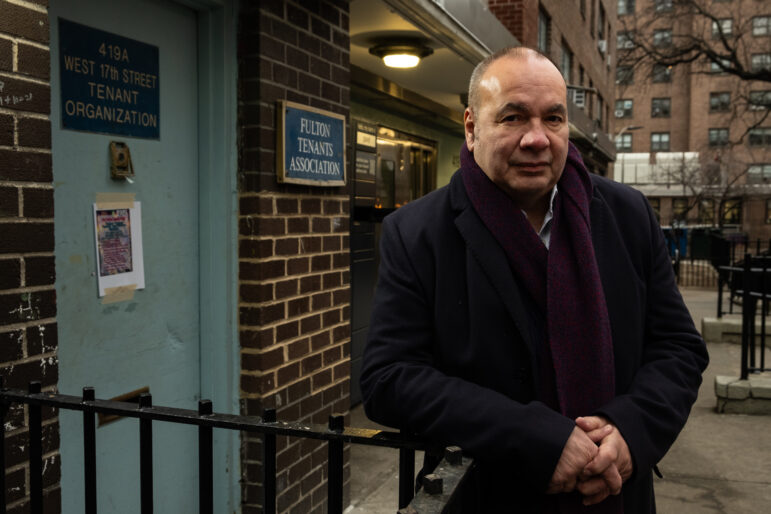In the Bronx, where residents have the least access to legal representation of any borough, one of the few law firms that provides free legal services there is putting its funding on the line.
For two years, Bronx Legal Services has been warned that it would have to consolidate with the rest of the city’s Legal Services system. Last Monday, the Bronx organization filed a lawsuit against its funders, claiming these demands violate both their contract and federal antitrust laws.
Bronx Legal Services Director Walker Thompson said the increased central oversight dictated by its funders compromises his office’s independence. But others think the lawsuit is a mistake. “The position that consolidation means the community will suffer is exactly wrong,” said Ghita Schwarz, president of the Legal Services Staff Association, the union for legal service employees.
Bronx Legal Services is one of seven nonprofit groups in the city that contract with Legal Services of New York (LSNY) to provide legal services to the poor. LSNY, in turn, reports to its national parent corporation and primary funder, the Legal Services Corporation (LSC), established by federal legislation in 1974. All are chronically underfunded: According to the LSC, only 20 percent of the 43 million potential clients eligible for federally-funded legal assistance actually get the help.
And changes made by Congress in 1996 didn’t help matters: The legislature cut LSC funds by 31 percent, to about $280 million. That same year, Congress also told the LSC to start using competitive bidding for its contracts. Struggling to continue its mission of serving the poor, LSC ordered each of the 14 state legal service groups it finances to find new funding resources and to coordinate services better.
New York, like many states, did not embrace the idea at first. But recognizing that its own funding could be jeopardized if it did not follow LSC’s orders, LSNY released a plan in October 2000 that consolidates services and centralizes decision-making. While preserving the neighborhood groups’ own boards of directors, the proposed plan makes them accountable to one central LSNY board for decisions like staffing and budgets.
To date, six of the seven local offices have given the plan a preliminary thumbs up. But the Bronx alone refused, saying that Legal Services lawyers might be forced to answer to LSNY’s funders rather than focus exclusively on their clients’ interests. The plan, Thompson explained, “enhances the likelihood of the lawyer having to look over his shoulder.”
Legal Services of New York calls that concern–and the lawsuit itself–unfounded. “The new system does raise the accountability level,” said LSNY board member Michael W. Martin. But he added that LSNY is “committed to the need of the clients and to local input”–which is why LSNY is maintaining the local boards.
More importantly, LSNY has to hold onto its federal funding. Because LSC will only fund organizations that cover the entire city, LSNY has to cover the Bronx. If Thompson’s office won’t cooperate, said Martin, LSNY will have to break ties with it and find another local partner.
Thompson seems willing to take the risk. In studying his $4.6 million budget, about 40 percent of which comes directly from LSNY, he determined that Bronx Legal Services could run on its own in two years–if he starts fundraising now








